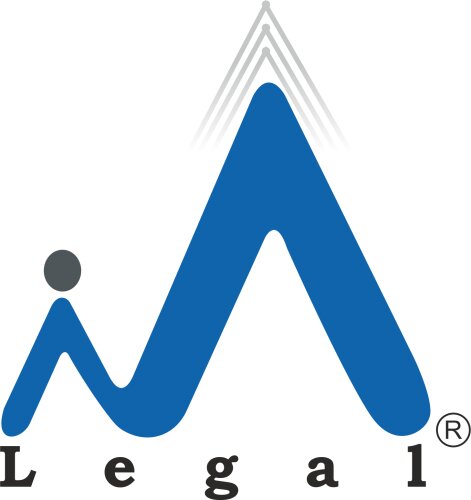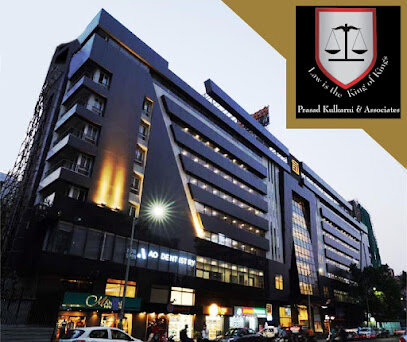Best Communications & Media Law Lawyers in Pune
Share your needs with us, get contacted by law firms.
Free. Takes 2 min.
List of the best lawyers in Pune, India
About Communications & Media Law in Pune, India
Communications and Media Law in Pune, India, encompasses legal aspects related to various forms of communication, including broadcasting, telecommunications, print media, digital media, and the internet. This field addresses issues such as content regulation, intellectual property rights, freedom of speech, privacy, advertising standards, licensing, and compliance with government regulations. Since Pune is a burgeoning tech and media hub, the region requires a sophisticated understanding of both national and local regulations governing these sectors.
Why You May Need a Lawyer
People may require legal assistance in Communications & Media Law for a variety of reasons. Common scenarios include:
- Defamation cases involving media entities or individuals.
- Intellectual property disputes such as copyright infringements.
- Privacy violations related to data protection and user rights.
- Compliance with regulations for broadcasting or publishing content.
- Advertising and marketing legalities, including deceptive practices.
- Telecommunication disputes involving service providers and users.
- Cyber law issues, including online harassment and misinformation.
- Licensing and regulatory compliance for new media ventures.
Local Laws Overview
Pune, while adhering to national laws, also has local regulations that impact Communications & Media Law. Key aspects include:
- The Information Technology Act, 2000: Governs cyber activities, digital signatures, and data protection.
- The Indian Penal Code (IPC), 1860: Sections on defamation and offensive communication.
- The Cable Television Networks (Regulation) Act, 1995: Regulates cable television services.
- Press and Registration of Books Act, 1867: Controls printing presses and newspapers.
- Telecom Regulatory Authority of India (TRAI) regulations: Governs telecommunication services.
Frequently Asked Questions
1. What is Communications & Media Law?
Communications & Media Law encompasses legal guidelines and regulations for broadcasting, telecommunications, print media, and digital platforms.
2. How do defamation laws affect media outlets?
Media outlets must ensure their content doesn't harm the reputation of individuals or entities, as defamation can lead to legal action and significant penalties.
3. What legal issues might arise in digital advertising?
Digital advertising must comply with consumer protection laws, data privacy regulations, and avoid deceptive practices.
4. How does the IT Act impact online content?
The IT Act governs data protection, cybercrime, and compliance requirements for online content providers.
5. Are there special licenses required for broadcasting in Pune?
Yes, broadcasters must obtain necessary licenses and comply with regulatory standards set by the Ministry of Information and Broadcasting and TRAI.
6. What steps should I take if my intellectual property is infringed?
You should consult a lawyer to initiate legal action for protecting your intellectual property rights through copyright or trademark enforcement.
7. Can social media posts be subject to defamation laws?
Yes, defamatory statements made on social media can lead to legal liabilities similar to traditional media platforms.
8. What regulations control telecommunication services?
Telecommunication services are governed by TRAI regulations, which ensure fair practices, pricing, and consumer rights protections.
9. How are privacy concerns addressed legally in media law?
Data protection laws and regulations help safeguard individuals' privacy, requiring media entities to handle personal information responsibly.
10. What are the penalties for non-compliance with media laws?
Penalties can range from fines, temporary or permanent bans, to imprisonment depending on the severity and nature of the offense.
Additional Resources
For those seeking legal advice or more information about Communications & Media Law, the following resources may be helpful:
- Ministry of Information and Broadcasting: Government body overseeing media regulations.
- Telecom Regulatory Authority of India (TRAI): Regulates telecommunication services.
- Indian Broadcasting Foundation (IBF): Industry association representing broadcasters.
- Pune Bar Association: Can provide contacts for local lawyers specializing in media law.
- Data Security Council of India (DSCI): Provides guidelines and standards for data protection.
Next Steps
If you need legal assistance in the field of Communications & Media Law, consider the following steps:
- Identify the specific legal issue you're facing (e.g., defamation, privacy violation, intellectual property dispute).
- Compile pertinent documents, communications, and other evidence related to your case.
- Consult with a lawyer who specializes in Communications & Media Law for advice and representation.
- Visit local legal aid organizations or bar associations for referrals to qualified legal professionals.
- Stay informed about current laws and regulations affecting your case by utilizing recommended resources and governmental bodies.
Lawzana helps you find the best lawyers and law firms in Pune through a curated and pre-screened list of qualified legal professionals. Our platform offers rankings and detailed profiles of attorneys and law firms, allowing you to compare based on practice areas, including Communications & Media Law, experience, and client feedback.
Each profile includes a description of the firm's areas of practice, client reviews, team members and partners, year of establishment, spoken languages, office locations, contact information, social media presence, and any published articles or resources. Most firms on our platform speak English and are experienced in both local and international legal matters.
Get a quote from top-rated law firms in Pune, India — quickly, securely, and without unnecessary hassle.
Disclaimer:
The information provided on this page is for general informational purposes only and does not constitute legal advice. While we strive to ensure the accuracy and relevance of the content, legal information may change over time, and interpretations of the law can vary. You should always consult with a qualified legal professional for advice specific to your situation.
We disclaim all liability for actions taken or not taken based on the content of this page. If you believe any information is incorrect or outdated, please contact us, and we will review and update it where appropriate.












